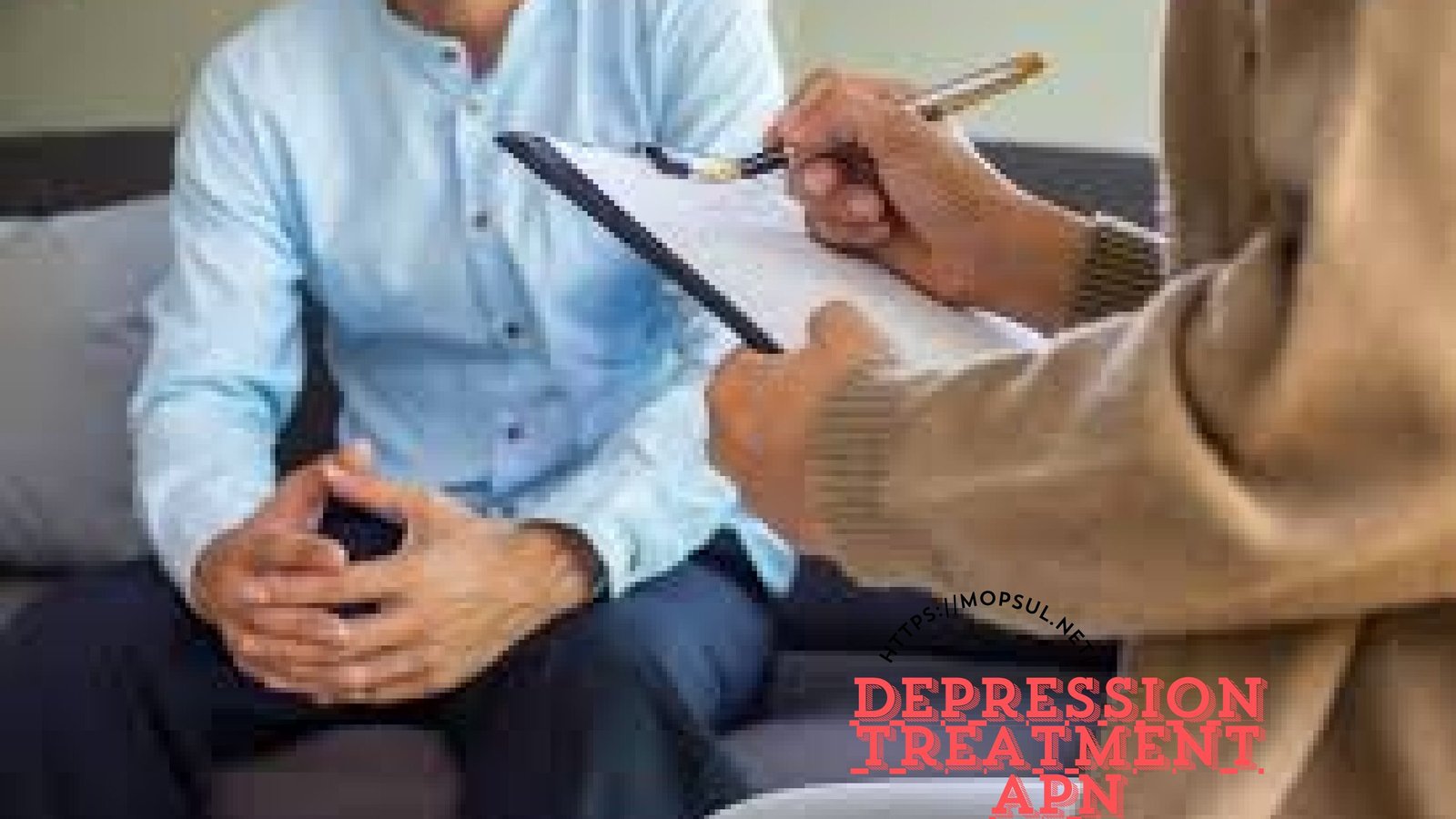depression treatment apn is a prevalent mental health condition affecting millions worldwide. Effective treatment is essential for improving the quality of life for those affected. This article explores the various approaches, practices, and novel therapies available for treating depression.
1. Traditional Treatments for Depression
Medication
Antidepressants are commonly prescribed to help manage depression. These include:
- Selective Serotonin Reuptake Inhibitors (SSRIs): Such as fluoxetine (Prozac) and sertraline (Zoloft).
- Serotonin and Norepinephrine Reuptake Inhibitors (SNRIs): Such as venlafaxine (Effexor) and duloxetine (Cymbalta).
- Tricyclic Antidepressants (TCAs): Such as amitriptyline and nortriptyline.
- Monoamine Oxidase Inhibitors (MAOIs): Such as phenelzine (Nardil) and tranylcypromine (Parnate).
These medications work by balancing chemicals in the brain that affect mood and emotions. However, they can have side effects, and finding the right medication often involves trial and error.
Psychotherapy
Psychotherapy, or talk therapy, is another cornerstone of depression treatment apn. Common forms include:
- Cognitive Behavioral Therapy (CBT): Focuses on identifying and changing negative thought patterns and behaviors.
- Interpersonal Therapy (IPT): Addresses issues in personal relationships that may contribute to depression.
- Psychodynamic Therapy: Explores unconscious processes and past experiences influencing current behavior.
Combining medication with psychotherapy often yields the best results.
2. Alternative and Complementary Therapies
Lifestyle Changes
Simple lifestyle adjustments can significantly impact mood and overall mental health. These include:
- Regular Exercise: Proven to reduce symptoms of depression by releasing endorphins and improving overall brain function.
- Healthy Diet: Nutrient-rich foods can improve brain health and function.
- Adequate Sleep: Poor sleep can exacerbate depression symptoms, so maintaining a regular sleep schedule is crucial.
Mindfulness and Meditation
Practices like mindfulness and meditation can help manage stress and reduce symptoms of depression by promoting relaxation and self-awareness. Techniques include:
- Mindfulness-Based Stress Reduction (MBSR)
- Mindfulness-Based Cognitive Therapy (MBCT)
These approaches teach individuals to focus on the present moment and develop a non-judgmental awareness of their thoughts and feelings.
Herbal and Nutritional Supplements
Some individuals find relief through herbal supplements and vitamins. Common supplements include:
- St. John’s Wort: Often used for mild to moderate depression.
- Omega-3 Fatty Acids: Found in fish oil, these have been shown to support brain health.
- S-Adenosylmethionine (SAMe): A synthetic form of a natural chemical in the body.
It’s essential to consult a healthcare provider before starting any supplements, as they can interact with medications.
3. Emerging Therapies
Ketamine and Esketamine
Ketamine, traditionally used as an anesthetic, has shown promise in treating severe depression and treatment-resistantdepression treatment apn. Esketamine (Spravato), a nasal spray derived from ketamine, has been approved for use in treatment-resistant depression. These treatments can provide rapid relief from depressive symptoms, often within hours.
Transcranial Magnetic Stimulation (TMS)
TMS is a non-invasive procedure that uses magnetic fields to stimulate nerve cells in the brain. It’s primarily used when other treatments haven’t been effective. TMS can improve symptoms of depression by altering brain activity.
Electroconvulsive Therapy (ECT)
ECT involves a brief electrical stimulation of the brain while the patient is under anesthesia. It’s typically used for severe depression when other treatments have failed. Despite its controversial reputation, ECT can be highly effective, particularly for those with severe or treatment-resistant depression.
Psychedelic-Assisted Therapy
Research into the therapeutic use of psychedelics, such as psilocybin (found in magic mushrooms), is gaining traction. Early studies suggest that these substances can provide significant relief from depression, particularly when used in a controlled, therapeutic setting.
4. Personalized Approaches and Future Directions
Precision Medicine
Precision medicine tailors treatment to the individual’s genetic makeup, lifestyle, and environment. Advances in genomics and personalized healthcare are paving the way for more customized and effective treatments for depression.
Digital Therapeutics
With the rise of digital health, mobile apps and online platforms offer new ways to support mental health. These tools can provide cognitive behavioral therapy, mindfulness exercises, and other therapeutic techniques, making mental health care more accessible.
Ongoing Research
The field of depression treatment is continually evolving, with ongoing research exploring new medications, therapies, and interventions. Understanding the underlying biology of depression and developing targeted treatments holds promise for the future.
In conclusion, treating depression requires a multifaceted approach that may include traditional treatments, lifestyle changes, emerging therapies, and personalized care. As research progresses, new and innovative treatments continue to offer hope for those living with depression.

